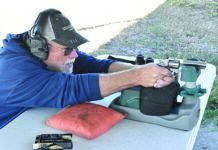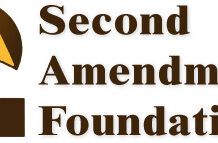(GunReports.com) — In its second major ruling on gun rights in three years, the Supreme Court Monday extended the federally protected right to keep and bear arms to all 50 states.
Justice Samuel Alito wrote for the five-justice majority, saying “the right to keep and bear arms must be regarded as a substantive guarantee, not a prohibition that could be ignored so long as the States legislated in an evenhanded manner.”
The ruling builds upon the Court’s 2008 decision in D.C. v. Heller that invalidated the handgun ban in the nation’s capital. More importantly, that decision held that the Second Amendment right to keep and bear arms was a right the Founders specifically delegated to individuals. The justices affirmed that decision and extended its reach to the 50 states. Today’s ruling also invalidates Chicago’s handgun ban.
Alito wrote, “Two years ago, in District of Columbia v. Heller, … we held that the Second Amendment protects the right to keep and bear arms for the purpose of self-defense, and we struck down a District of Columbia law that banned the possession of handguns in the home. The city of Chicago (City) and the village of Oak Park, a Chicago suburb, have laws that are similar to the District of Columbia’s, but Chicago and Oak Park argue that their laws are constitutional because the Second Amendment has no application to the States. We have previously held that most of the provisions of the Bill of Rights apply with full force to both the Federal Government and the States. Applying the standard that is well established in our case law, we hold that the Second Amendment right is fully applicable to the States.”
The Supreme Court’s ruling expanded to the states the high court’s historic 2008 ruling that individuals have a federally protected right to keep and bear arms. In effect, the ruling struck down Chicago’s handgun ban, which was similar to the Washington D.C. law already invalidated by the justices.
Lawyer Alan Gura, the same man who argued and won D.C. v. Heller in 2008, represented Otis McDonald, who said Chicago’s handgun ban doesn’t allow him to adequately protect himself. Gura argued the Heller decision, which only applied to Washington D.C. and other areas of federal control, should equally apply to Chicago and the rest of the country.
“In 1868, our nation made a promise to the McDonald family that they and their descendants would henceforth be American citizens, and with American citizenship came the guarantee enshrined in our Constitution that no State could make or enforce any law which shall abridge the privileges or immunities of American citizenship,” Gura told the Court during oral arguments in March.
He argued the language of the Constitution’s 14th Amendment forces the states to protect the rights guaranteed by the Second Amendment. The Bill of Rights, which was adopted in the late 18th Century, was then commonly viewed as only offering protections from the federal government.
It wasn’t until after the Civil War that the Supreme Court in a piecemeal fashion began to apply–or incorporate–parts of the Bill of Rights to the states. It has used the 14th Amendment’s Due Process Clause to incorporate most of the Constitution’s first amendments but had not yet done so for the Second Amendment.
Gura argued that another part of the 14th Amendment would be a better vehicle for the justices to make their ruling but there didn’t appear to be enough support from the bench on that front.
Chief Justice John Roberts was the most vocal advocate of using the Due Process Clause to extend the Second Amendment rights to the states. “I don’t see how you can read — I don’t see how you can read Heller and not take away from it the notion that the Second Amendment…was extremely important to the framers in their view of what liberty meant.”
The discussion over “liberty” was a major philosophical theme of the arguments. Gura and National Rifle Association lawyer Paul Clement argued that the rights articulated in the Second Amendment are fundamental freedoms and would exist to all Americans even if there was no law specifically saying so.
Justice Ruth Bader Ginsburg dissented in Heller and wondered why the right to bear arms was necessary to extend to the states. “[I]f the notion is that these are principles that any free society would adopt, well, a lot of free societies have rejected the right to keep and bear arms.”
Later in the arguments Roberts disputed that notion. “I do think the focus is our system of ordered liberty, not any abstract system of ordered liberty. You can say Japan is a free country, but it doesn’t have the right to trial by — by jury.”

























